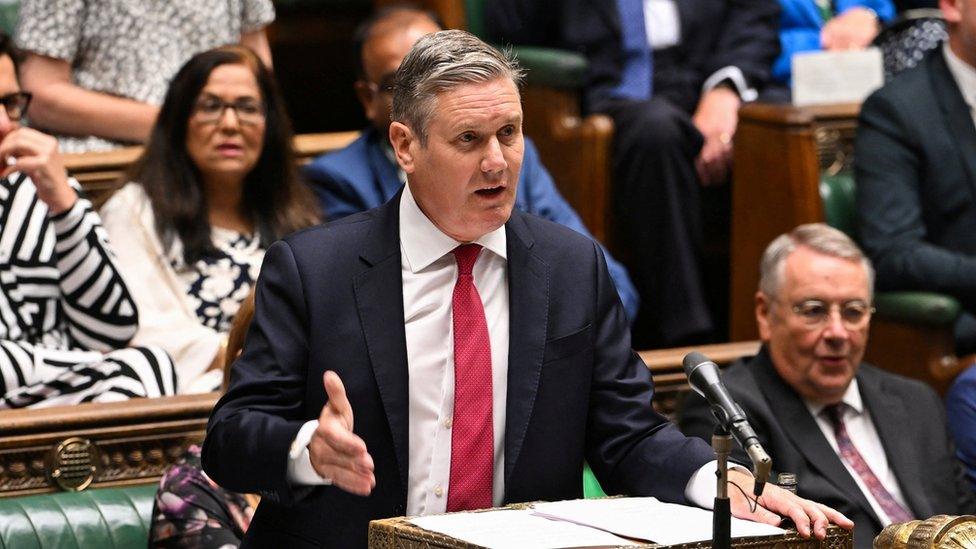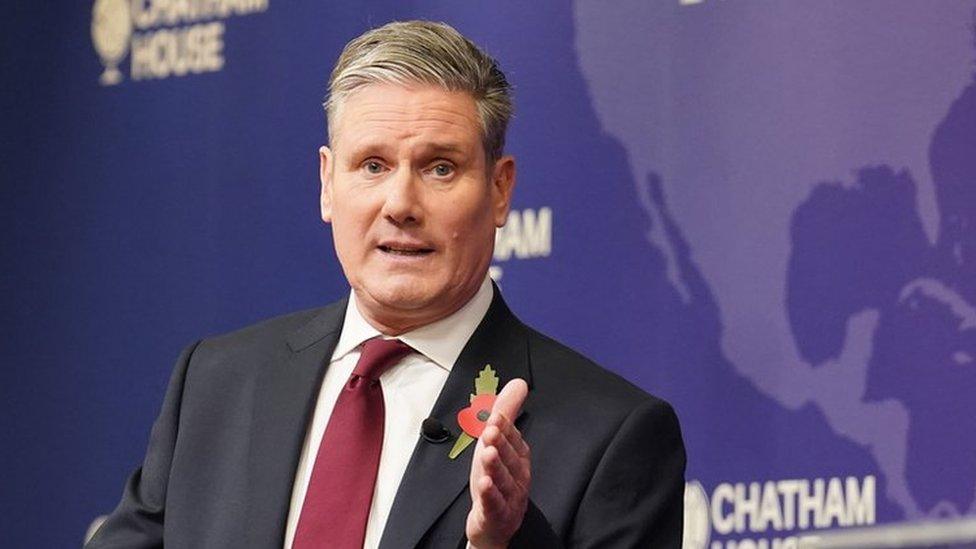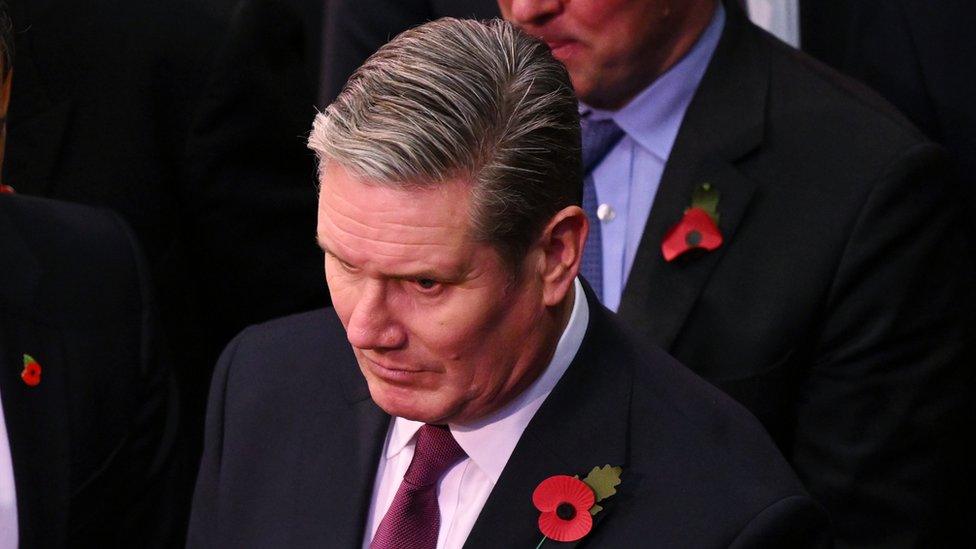Keir Starmer set for showdown with Labour MPs over Gaza stance
- Published

Sir Keir Starmer is set for a showdown with Labour MPs later over the party's position on the Israel-Hamas war.
Dozens could back a Commons motion from the SNP calling for an immediate ceasefire in the conflict, in contrast to the Labour leader.
Labour has ordered its MPs to abstain on the SNP's motion, meaning frontbenchers must resign or face the sack to support it.
But three frontbenchers have already indicated they will defy their leader.
Shadow Home Office minister Naz Shah, shadow education minister Helen Hayes and shadow trade minister Afzal Khan all told MPs they wanted to support an immediate ceasefire.
The party has tabled its motion urging longer pauses in the fighting to deliver aid, which, along with the SNP motion, will be voted on after 19.00 GMT.
Nineteen frontbenchers have expressed an opinion on the conflict at odds with their leader. One, shadow minister Imran Hussain, quit his position last week in order to campaign for an immediate ceasefire.
Speaking ahead of the vote, he said humanitarian pauses - as advocated by Labour's leader - do not "go far enough," adding that a ceasefire would "create space for meaningful negotiations".
Nearly 70 Labour MPs have defied their leader to call for a ceasefire now, and nearly 50 councillors have resigned from the party over the leadership's position on the war.
Sir Keir has argued that a ceasefire would not be appropriate, because it would freeze the conflict and embolden Hamas.
Instead, Labour, like the Conservative government, the United States and the European Union, is calling for "humanitarian pauses" to help aid reach Gaza.
Compared with a formal ceasefire, these pauses tend to last for short periods of time, sometimes just a few hours.
They are implemented with the aim of providing humanitarian support only, as opposed to achieving long-term political solutions.
Last week, the US said Israel would begin to implement daily four-hour military pauses in areas of northern Gaza.
King's Speech votes
The competing motions on the conflict come in the form of amendments to the King's Speech, the government's legislative programme for the year ahead unveiled last week.
Labour's motion would support Israel's right to self-defence after Hamas's "horrific terrorist attack" on 7 October, in which 1,200 people were killed, and call for the release of more than 200 people taken hostage.
But it also says there has been "too much suffering, including far too many deaths of innocent civilians and children" since Israel began striking Gaza in response.
The Hamas-run health ministry says more than 11,000 people have been killed in Gaza since then - of whom more than 4,500 were children.
The amendment calls on Israel to "protect hospitals and lift the siege conditions" on the territory, and urges longer humanitarian pauses to allow aid "on a scale that begins to meet the desperate needs of the people of Gaza".
It says this is a "necessary step to an enduring cessation of fighting as soon as possible and a credible, diplomatic and political process to deliver the lasting peace of a two-state solution".
Whipped vote
Labour has confirmed that its MPs will be under a three-line whip - the strictest instruction - to back the party's motion, and abstain on the competing SNP motion calling on "all parties to agree to an immediate ceasefire".
"This is a whipped vote and every MP knows what the consequence of that means," a spokesman added.
Supporters of Sir Keir's position hope the gambit of tabling its own motion could mean most resignations are avoided.
However, they concede that the question of backing a ceasefire has become the central issue for some of the MPs.
Related topics
- Published31 October 2023

- Published8 November 2023
